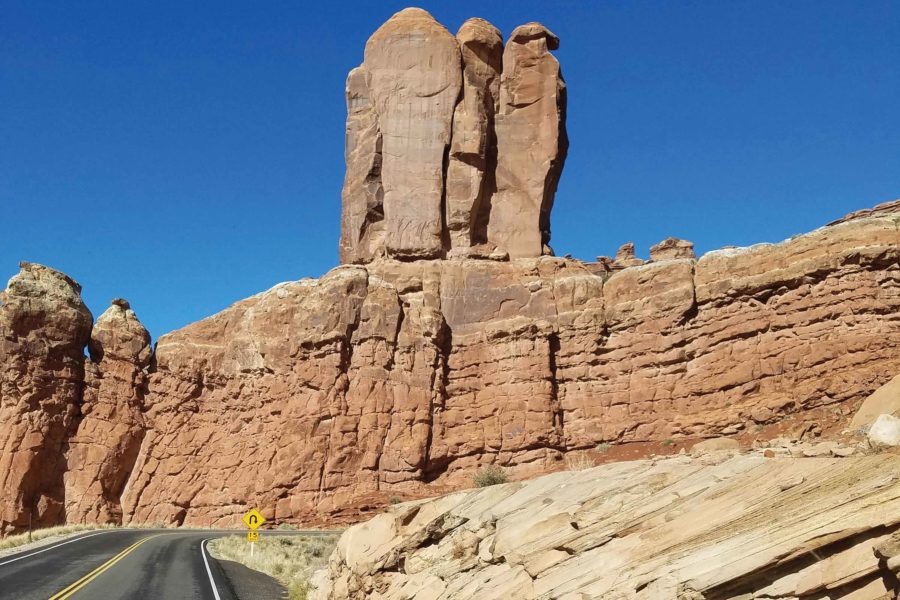Ever dream of selling all your possessions, hitting the road and traveling around wherever you please while you live out the rest of your days? For those of you who have, this may seem likely to remain a fantasy—unless you’re independently wealthy and have all the time in the world.
But, does it have to?
With more and more people working freelance jobs and the gig economy in full swing, there is a rising tide of people who are able work sporadically while or so they can travel.
Some work for a bit, save up and then take a year off to travel the world, while others freelance at jobs specific to their skill set while they’re on the road. Still others combine travel and home and work into one and the same.
 Annie B. Copps
Annie B. Copps
Annie B. Copps is a Boston-based cookbook author, chef, cooking instructor, international culinary tour guide, journalist and food activist. She recently authored illustrated cookbook-cum-guidebook “A Little Taste of Cape Cod,” published in 2018, and “Little Local Maine,” due out later this year.
For the last nine years, Copps has also served as senior chef instructor for the Oceania and Regent cruise lines, which puts her on the “road” seven months out of the year, working two to three months on the ship, with six weeks off.
We asked her how she landed where she did. “When Jacques Pepin calls, you listen,” she says. The world-renowned chef is the executive culinary director for the fleet.
“I was the food editor at Yankee magazine, and it was time for a change,” she says. “This crazy offer came to me. I thought the idea of cruising was the worst possible way to travel. I had no idea. These ships, the crew, the guests are really wonderful.”
Copps’ duties include teaching hands-on cooking classes, everything from seafood to crepes to Cuban cuisine to paella. She also leads culinary tours, which vary from market visits to taking guests on outings to local restaurants. “The crew on the ship are the nicest and most supportive people I have ever worked with,” says Copps.
People want to know about the places I go, but they don’t understand my actual job or how it all works.
“Some of my family and friends have been on the ship, but many have not. It’s hard to explain all the nuances of ship life,” she explains. “For the most part, people want to know about the places I go, but they don’t understand my actual job or how it all works. My parents and siblings think it is fantastic and brave.”
Living Like a Nomad
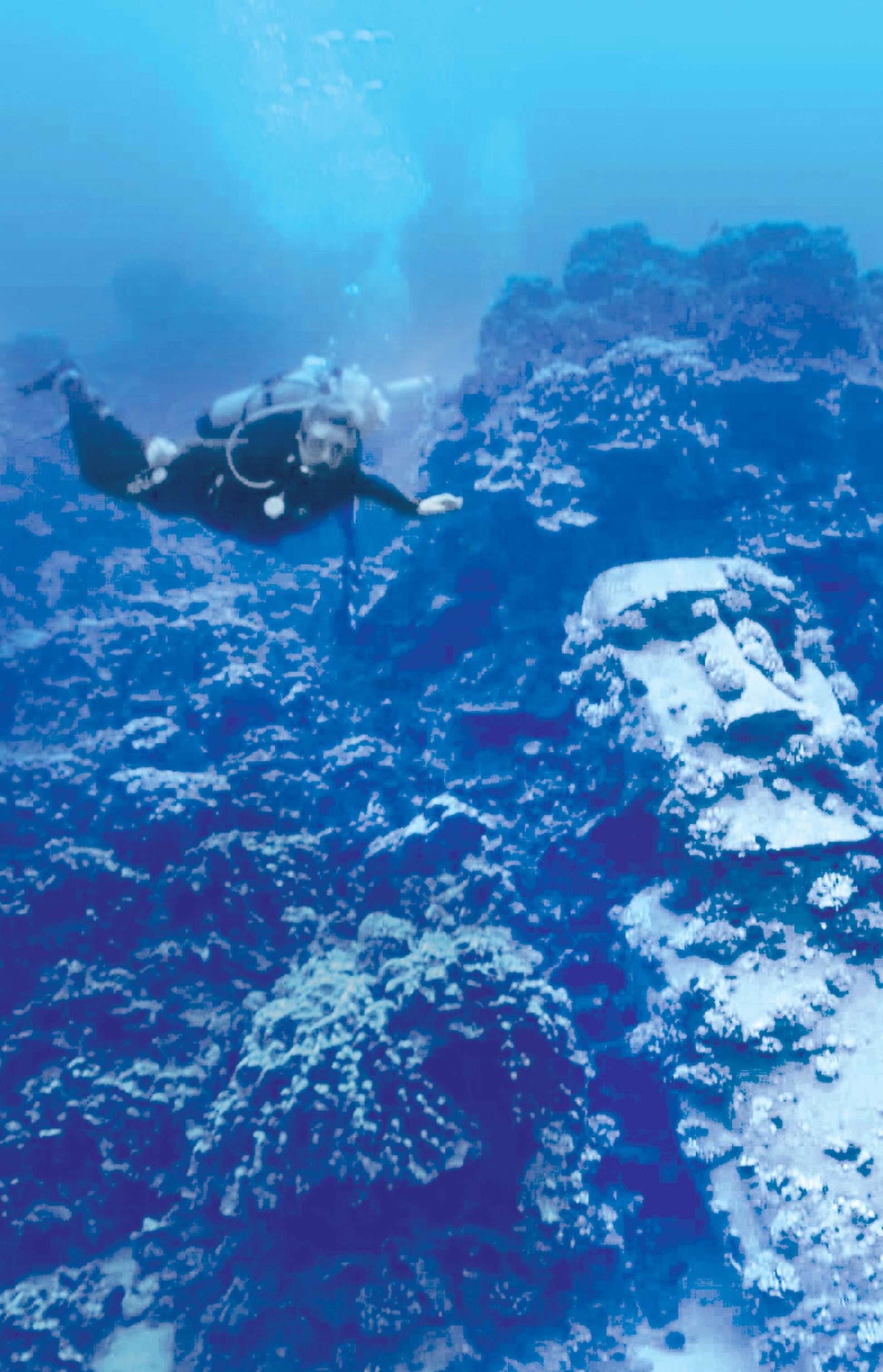 The Upside
The Upside
- The people I meet.
- The travel. I spent this season in French Polynesia and did a ton of diving. A few times, my phone buzzed with snow emergency alerts—I laughed and put on more sunscreen.
- The food and wine. Pizza in Naples. Malbec in Buenos Aires. Empanadas in Ecuador. Mojitos in Cuba. Schnitzel in Germany. Yogurt in Greece.
- A bit cheesy, but the sunrises and sunsets are bananagrams.
The Downside
- You don’t have your besties or your family.
- No pets.
- As much as I cook on the ship, I can’t really make my own meals.
- You miss things: Births, deaths, weddings, graduations.
Biggest Surprise
People are people.
Things You Miss
- Gardening.
- The consistency and routine that you can set for yourself.
- I enjoy taking classes and learning new things. I can’t always commit to a writing or pottery class, because the start and end dates don’t always align with my schedule.
Things You Don’t Miss
Being on the ship, you’re sort of in suspended animation. As much as I am concerned about politics and big problems we have in the world, they don’t always feel quite as real here.
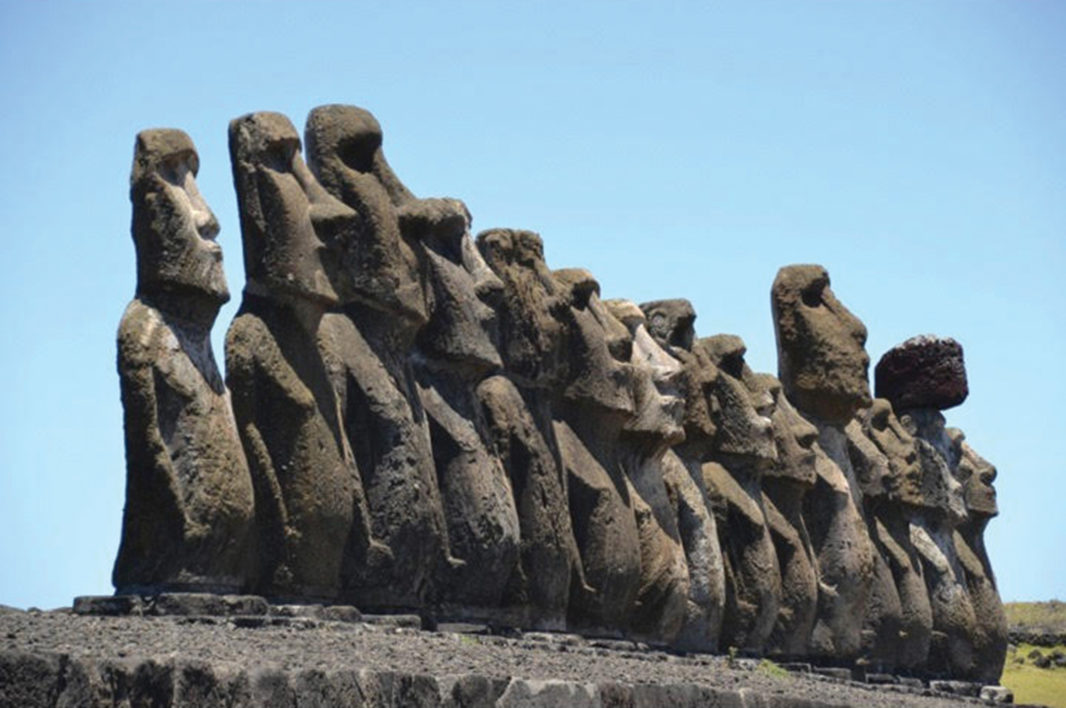
Judy Patterson
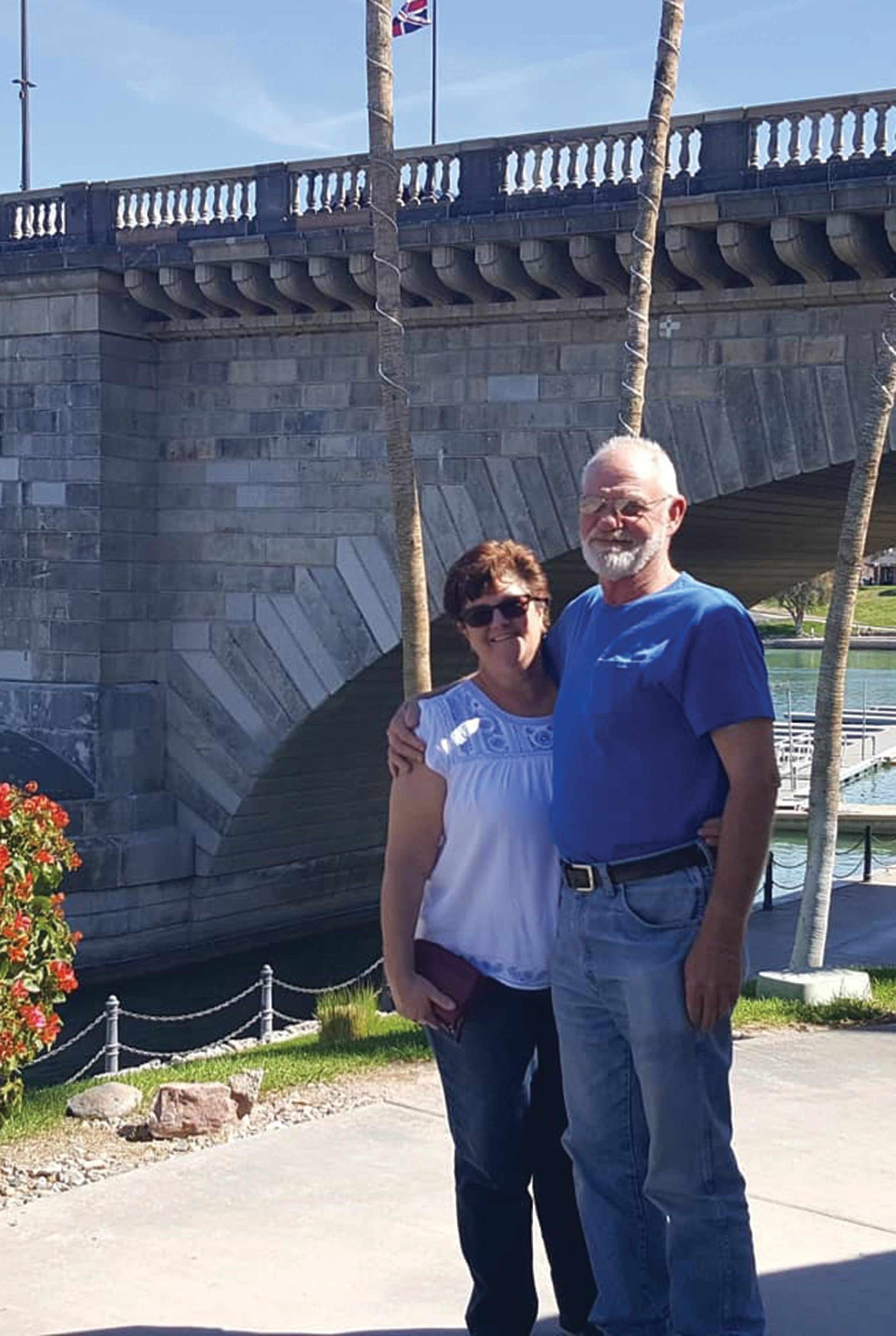 Two years ago, Massachusetts native Judy Patterson and her partner Karl retired from their full-time jobs, bought a 31-foot motor home and joined the large community of people who work at campgrounds across the U.S.
Two years ago, Massachusetts native Judy Patterson and her partner Karl retired from their full-time jobs, bought a 31-foot motor home and joined the large community of people who work at campgrounds across the U.S.
“My partner and I had always had this dream of retiring and traveling across country,” says Patterson. “As we were saving for our adventures, we both faced some serious medical issues and decided to embark on the journey sooner than we anticipated. We knew we would have to supplement our incomes in order to make it happen, so we looked into ‘workamping.’”
A workamper is employed by a campground/resort where they work anywhere from five to 40 hours a week in exchange for a campsite and utilities.
“We are wrapping up our winter gig at an RV resort in the desert of Arizona,” says Patterson, describing her current position. “I work in the main office, while my partner is on the maintenance team. We’ve been accepting five- and six-month gigs, but we are realizing that we begin to get the urge to move, otherwise known as hitch itch, after three or so months. We have a gig coming up in October that is just for that month.”
We begin to get the urge to move, otherwise known as hitch itch, after three or so months.
Patterson loves her new lifestyle and highly recommends it.
“This is a great opportunity for anyone who is planning on traveling across the country,” she says. “More and more women are traveling by themselves. Workamping is a great way for them to supplement their incomes, even if they just work five hours a week for their campsites. I always had a dream to travel all over the country and experience all the amazing sites along the way. Today, I am living that dream.”
Living Like a Nomad
The Upside
- Meeting new people.
- I love the work I do.
- Seeing the country.
The Downside
- Being away from family.
- Not knowing what to expect from the next job.
- Having to carefully watch the weather. We ran into a blizzard going back to Massachusetts last year. It’s not fun in a 31-foot motorhome.
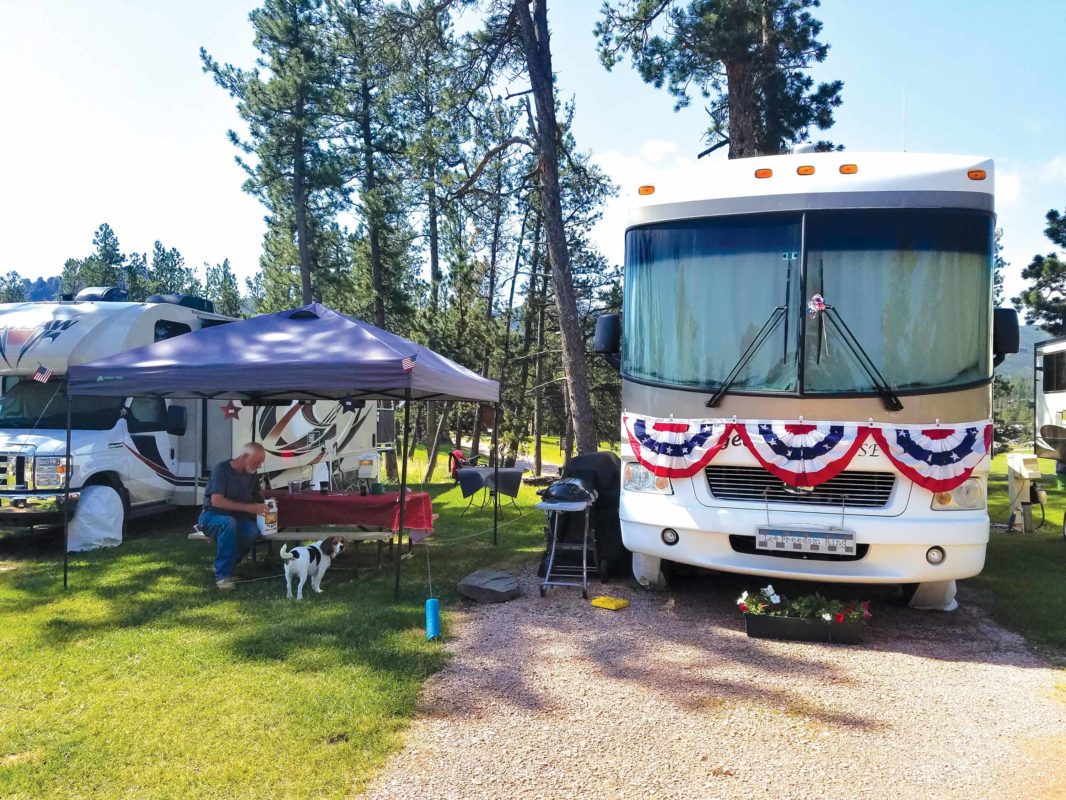
Biggest Surprise
I was surprised that I could live in a 300-square-foot box with the same person this long.
Things You Miss
I’m surprised at how much I miss Massachusetts. Every state has its different lifestyles. I don’t know if I would ever go back to stay, but there’s something about the familiar way of life that gives you comfort.
Things You Don’t Miss
The daily routine.
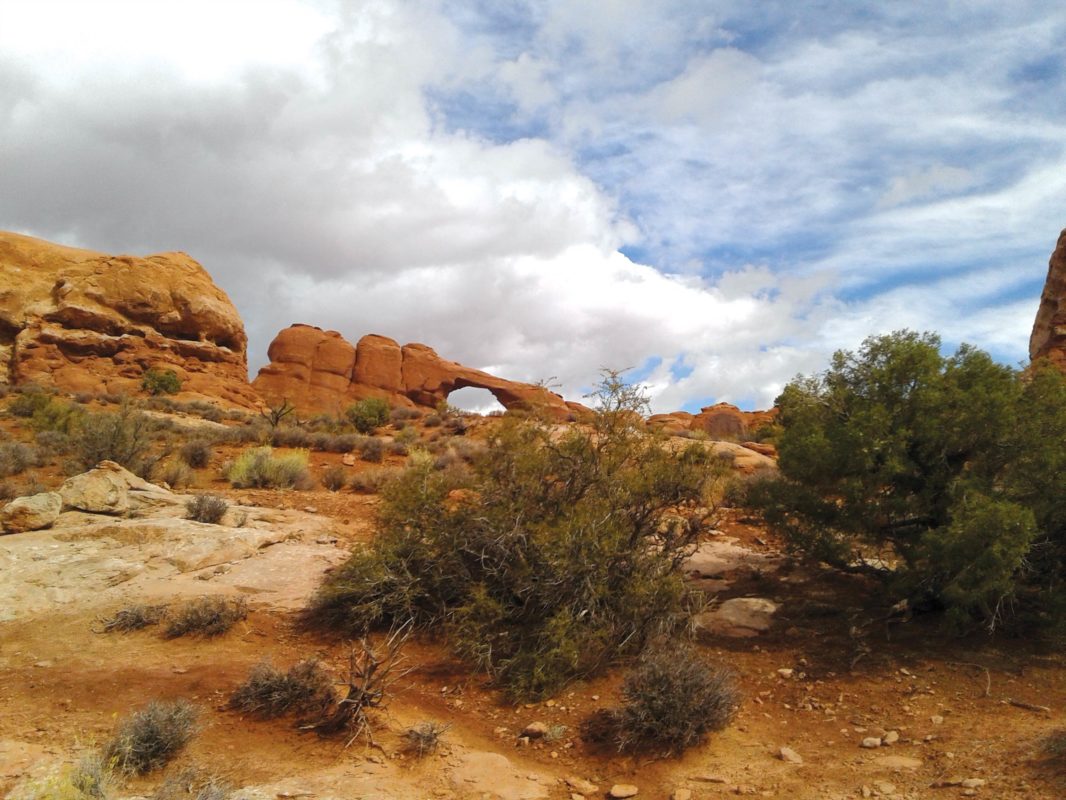
Karen Catchpole
In 2006, travel journalist Karen Catchpole left her job and apartment in New York City and embarked on a working road trip through North, South and Central America.
She travels with her husband and business partner, photographer Eric Mohl. The pair created the Trans-Americas Journey project and travel blog together, which covers independent travel in the Americas.
When she’s not working on that project, Catchpole freelances for a wide range of travel magazines, newspapers and websites.
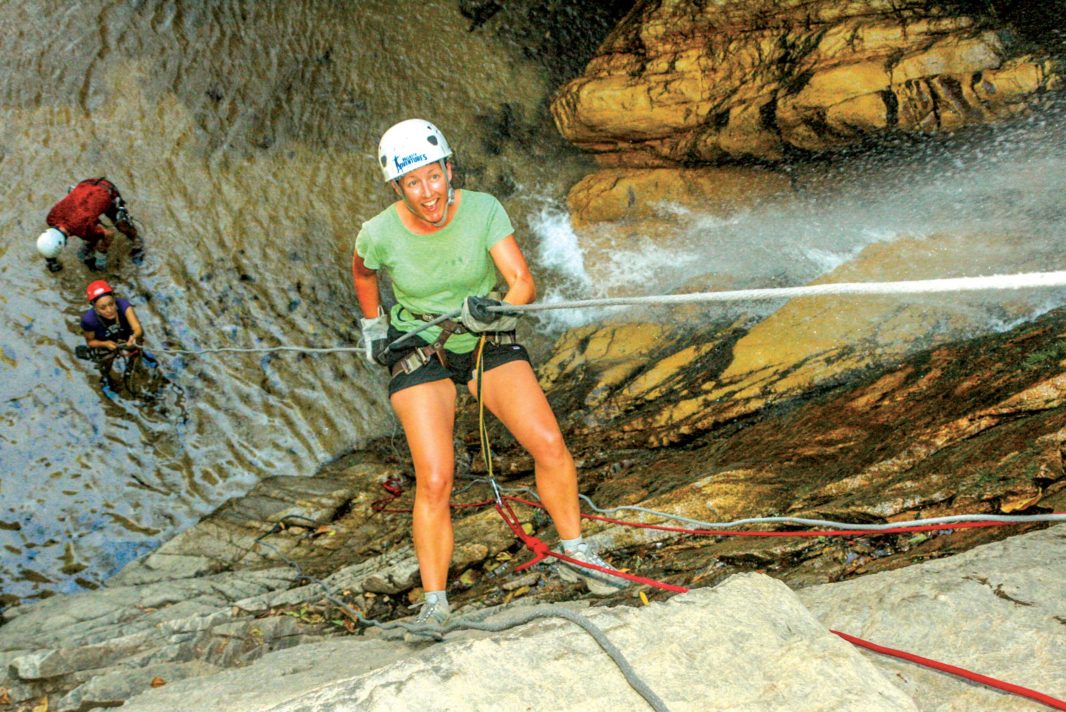
ERIC MOHL
Karen Catchpole rappelling in Mexico
“I was a staff editor and a freelance journalist for the early years of my career,” Catchpole says. “Long-term travel became a thing for me in the second half of the 1990s, which I spent backpacking in South Asia and Southeast Asia.”
During that time, the internet became viable for normal people, and internet cafes began to pop up all over the place.
“Suddenly, I could communicate (relatively) easily and cheaply with editors everywhere,” she says. “That [trip] led to a desire to create a more organized and well-defined project that would allow me to more formally combine my career as a freelance journalist with a life of travel.”
Catchpole returned to her home in New York City and spent the next six years working, saving money, and creating and planning her vision for the Trans-Americas Journey.
At that time, the term ‘digital nomad’ did not exist, let alone the term ‘modern nomad. Our friends were mostly of the ‘I wish I could do that!’ variety.
“At that time, the term ‘digital nomad’ did not exist, let alone the term ‘modern nomad,’” she says. “Our friends were mostly of the ‘I wish I could do that!’ variety and had great enthusiasm for the project, if very little understanding of what, exactly, we were doing.”
“Over time, friends and family members have seen that we haven’t starved to death yet, and they have realized that I have a job just like anybody else. It’s just mobile. There’s not much that’s typical about my days, which is part of the appeal and part of the challenge.”
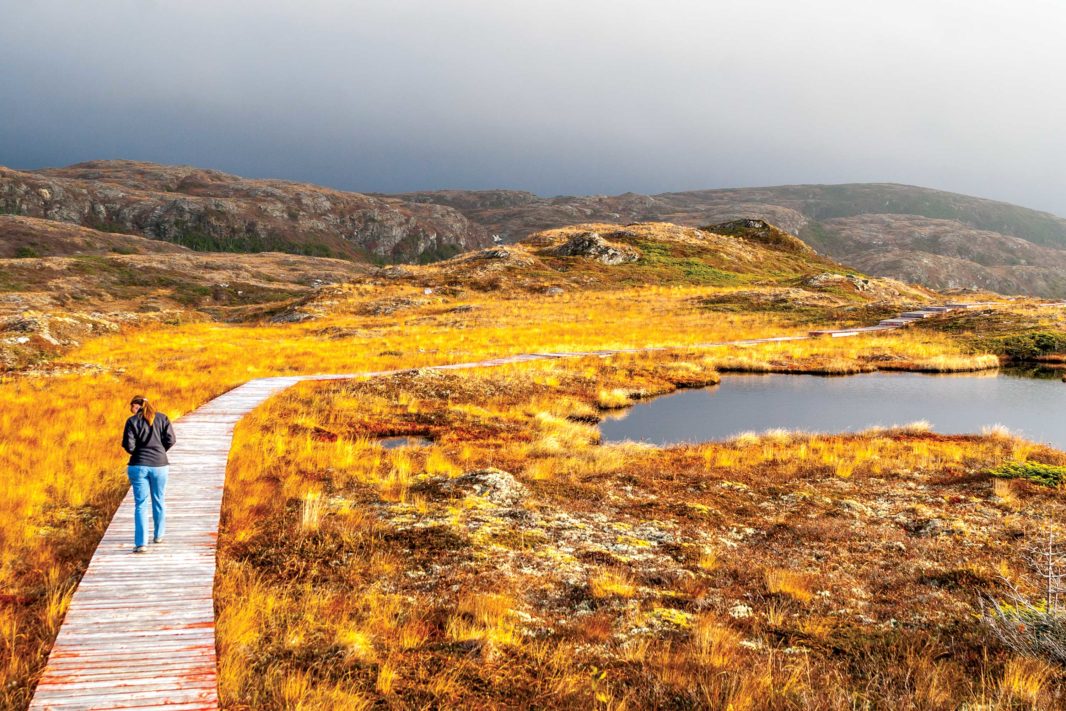
PHOTO BY ERIC MOHL
Journalist Karen Catchpole in Newfoundland, Canada
Living as a Nomad
The Upside
Freedom. Exploration. Lack of routine.
The Downside
If I could list downsides, then I probably wouldn’t (or shouldn’t) be doing this. I defy you to name a lifestyle that doesn’t have downsides. This is not some sort of perpetual vacation. This is life and career on the road.
Biggest Surprise
One of the major adjustments was a decision to travel more slowly in order to make room for all of the jobs I need to do in order to maintain the travel, the research, the reporting, the pitching, the writing, and a half dozen other jobs in order to keep this little road trip on the road.
Things You Miss
- Friends and family.
- Knowing where the best laundromat and best place to get a haircut are. The basics (like dirty clothes and unruly hair) are the most complicated things to figure out.
Things You Don’t Miss
The priorities. The pace. The politics.



 8 min read
8 min read